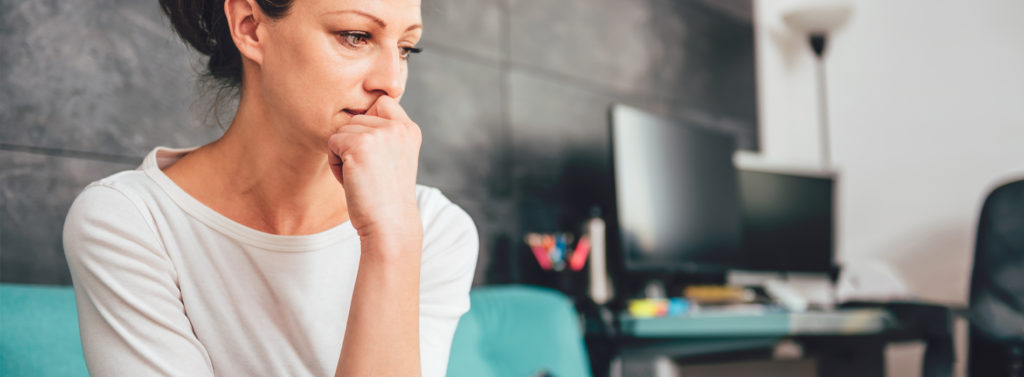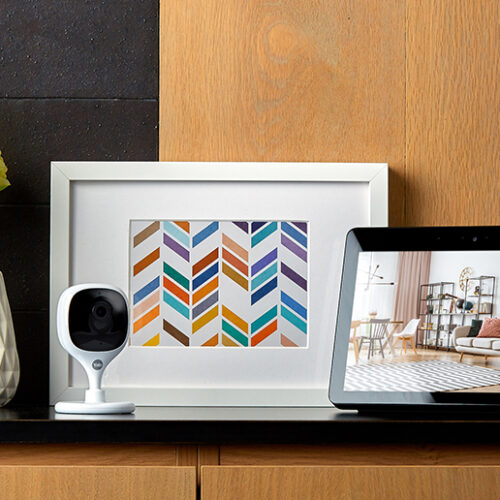Dealing with Postnatal Anxiety
For many women who have just become new mothers, feelings of anxiousness is more common than feeling ‘blue’. Yet there is greater awareness about antenatal and postnatal depression than there is about anxiety.

Feeling anxious is a normal human trait that plays a crucial role in situations that may be dangerous. When we are faced with a dangerous situation, our bodies react physically. We release adrenaline, our breathing changes and the fight or flight response is triggered. The difference between experiencing anxiety when you face danger and when you are suffering from an anxiety issue is that you will likely experience these same symptoms (adrenaline and breathing rate) when there is no threat or danger to yourself or loved ones. This physical reaction creates emotional and mental stress too. When a woman becomes a mother, it is completely natural that she is going to have feelings of apprehension as everything is new. Anxiety is a problem when the feelings become overwhelming and tend to intrude on her daily life.
SYMPTOMS OF ANXIETY AFTER CHILDREN ARE BORN
Women who are extremely anxious during their pregnancy or after they have given birth usually present the following symptoms:
- Feeling on edge all the time – any small thing can set her off or cause an issue
- Restlessness – cannot relax or feel at ease
- Irritability & finding it hard to concentrate – she will get annoyed easily, snap at people and will not be able to concentrate on anything she does or tries to do
- Sleep issues – already feeling sleep deprived, she will not be able to fall asleep or stay asleep when she desperately needs to
- Muscle tension – feeling sore, aching and unable to really move with ease
- Changes in appetite & weight – either not wanting to eat at all or eating too much too often.
7 TIPS TO HELP WOMEN WITH ANXIETY AFTER BABIES ARE BORN
- A nutritious meal
I used to hate the saying you are what you eat. But it’s true and having a great nutritional diet will impact your mood, energy levels and ability to deal with internal and external stress. Caffeine is well-known to be an anxiety inducer, so best to stay away from it as much as possible. Dehydration can cause all sorts of stress on the body too, which leads to stress in the mind. For example, dehydration can actually cause heart palpitations, which can lead to feelings of panic, that may trigger an anxiety attack.
2. Write out your thoughts
One of the worst aspects of anxiety is not knowing why you feel nervous in the first place. You could be lying on an idyllic beach with the ocean waves lapping in the distance and still feel worried for absolutely no reason. That’s when writing can help. It can be an effective way to explore how you feel, especially if talking out loud feels impossible. Studies show that keeping a journal is actually a healthy way to deal with negative feelings and can help reduce stress. Another study found that anxious test participants who wrote a few notes before the test, about how they were feeling and what they were thinking, performed better than those who didn’t.
- Talk to someone you trust
If your feelings of anxiety are making it hard to function, you should speak to a professional you can trust. Talking to friends can also help, depending on their ability to listen patieintly and not judge.
- Adopt a mantra
Positive affirmations can help shift your mood. Having a mantra you repeat to yourself when you feel anxious like “This feeling is only temporary.” will support you to feel calm.
- Walk it off
Sometimes, when you’re experiencing anxiety, it’s because of a buildup of adrenaline. Exercise— even if it’s just a walk — can help use up that extra adrenaline. Walking outside in the fresh air can also improve your wellbeing, especially when done in nature. There is something about connecting to mother earth.
- Turn off your phone
Being constantly plugged can be a cause of stress for many, feeling they need to reply to people quickly and be available. Don’t be afraid to turn off your phone once in a while. Use it as a chance to practice mindfulness and be really present in the moment.
- Try hypnotherapy
Hypnosis is a natural state of deep relaxation in 1955 it was recognized as a legitimate therapeutic technique by the British Medical Association it is now considered an accepted part of health treatment. As a counselor and coach I use hypnotherapy for mothers who have anxiety over money, their children and their relationships, as well as people with social anxiety. Hypnotherapy can change your life for the better, and the great thing is you don’t even have to believe that it will. You can be skeptical and it can still work as it has been scientifically proven to make changes when you listen to the track repeatedly which is why I create a special track for each person I work with and record it for them, so they can listen to each night for lasting results.
- Plan ahead
Reflect on what currently makes you feel anxious and take the necessary actions to reduce the things that stress you out. For example, if seeing your house in a mess causes you anxiety, it can be a good idea to get someone to help. Another important thing to consider is what helps you to relax that is good for you? If you don’t have any ways to relax then perhaps now is the time to write a list of things that can help you switch off. If you are struggling right now do reach out to someone you can share your feelings with in confidence, where you won’t be judged. Many wait for time to help but sadly anxiety often gets worse over time when left to escalate.
Written by Nicola Beer Individual and Relationship counselor Dubai & online for free e-books, podcast audios and sessions visit nicolabeer.com











Comments